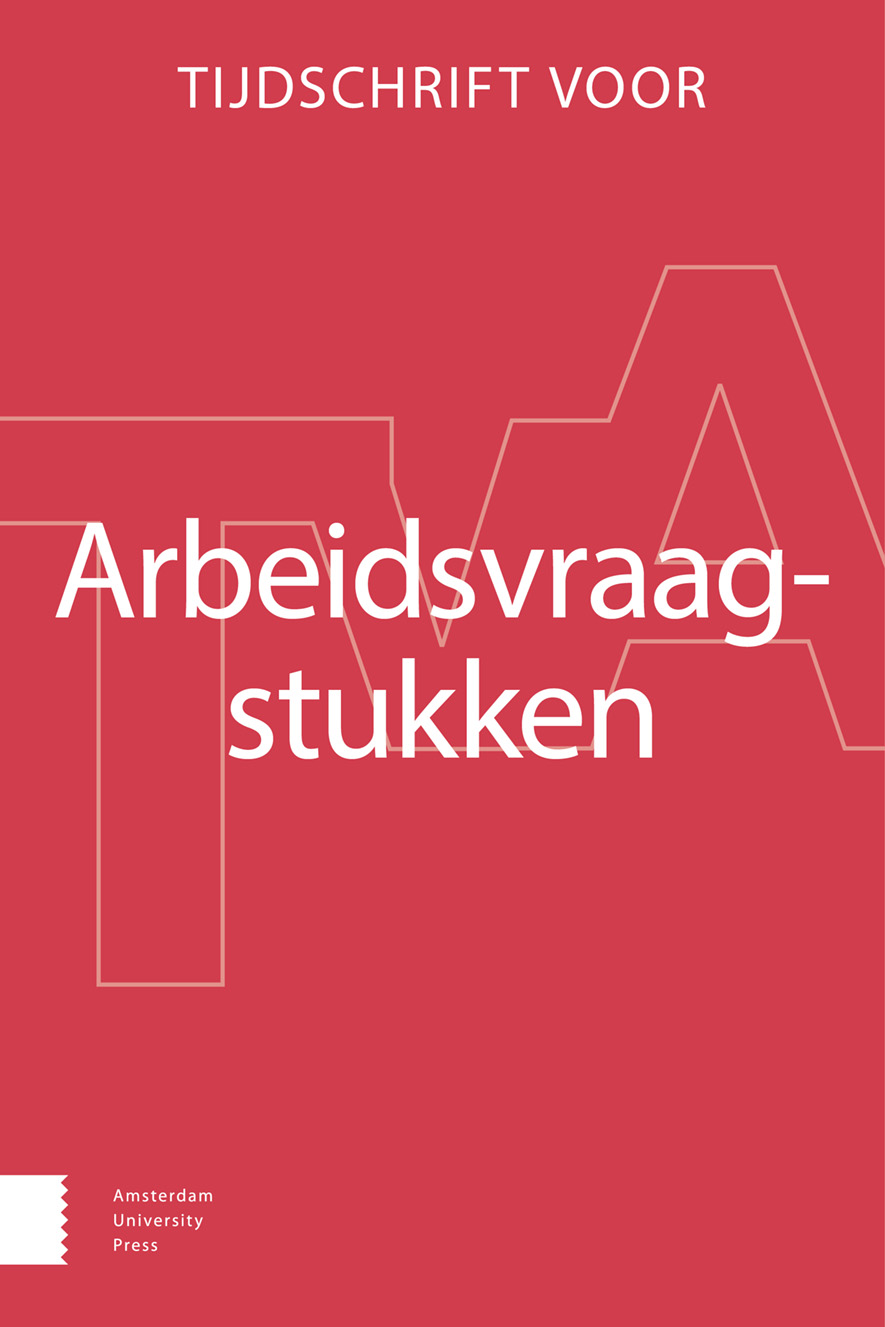
Full text loading...
We use cookies to track usage and preferences.I Understand
Het maatschappelijk debat over arbeidsre-integratie is de laatste jaren enigszins verschoven naar de ‘waarde van werk’. Maar kan werk eigenlijk wel waardevol of betekenisvol zijn wanneer bijstandsontvangers hiertoe worden verplicht, zoals in het kader van de re-integratieverplichting? Dit artikel beoogt meer inzicht te geven in de interactie tussen de (beperkte) autonomie van bijstandsgerechtigden en de wijze waarop zij het werk als betekenisvol en/of betekenisloos ervaren. Hiertoe is in drie gemeenten in Nederland kwalitatief onderzoek uitgevoerd. De resultaten zijn geanalyseerd aan de hand van theoretische benaderingen van betekenisvol werk en autonomie en laten zien dat de beperkte autonomie van bijstandsontvangers op een zeer diverse en soms tegenstrijdige wijze interacteert met de wijze waarop deze bijstandsontvangers het werk in verplichte werkprogramma’s ervaren. Hoewel de beperking van de autonomie van bijstandsontvangers in die programma’s kan bijdragen aan de persoonlijke groei van de deelnemers, geven klachten over het gebrek aan uitzicht op uitstroom naar betaald werk, de gedwongen aard van het werk en het verlies aan eigenwaarde aanleiding tot heroverweging van bestaande verplichte werkprogramma’s.

Article metrics loading...

Full text loading...
References


Data & Media loading...

